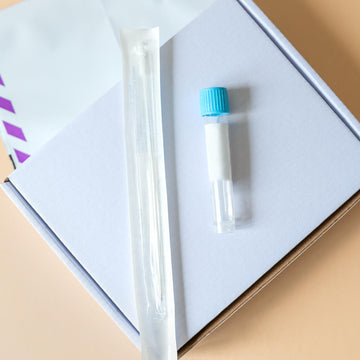At-home health tests have revolutionized how we manage our health, offering convenience and privacy. From DNA testing to checking for specific conditions like diabetes or high cholesterol, these tests can provide valuable insights without needing a trip to the doctor. However, with so many options available, it can be challenging to choose the right one. This guide from VivaTest UK will help you navigate the selection process, ensuring you pick the best at-home health test for your needs.
Factors to Consider When Choosing an At-Home Health Test
1. Identify Your Health Concern
- Specific Symptoms: If you have specific symptoms, choose a test that targets those issues. For example, if you suspect a food allergy, select an at-home allergy test.
- Routine Monitoring: For ongoing conditions like diabetes, opt for regular monitoring tests such as blood glucose or HbA1c tests.
- General Health Screening: If you're looking to understand your overall health, comprehensive tests that cover multiple biomarkers might be beneficial.
2. Check the Test’s Accuracy and Reliability
- FDA Approval: Look for tests that are FDA-approved or have received clearance from other regulatory bodies.
- Peer Reviews and Studies: Research the test's accuracy and reliability through customer reviews and scientific studies. Reputable companies often publish validation studies for their tests.
3. Ease of Use
- Sample Collection Method: Consider how the sample is collected. Common methods include blood pricks, saliva samples, urine samples, or stool samples. Choose one that you are comfortable with.
- Clear Instructions: Ensure the test comes with clear, easy-to-follow instructions. Video tutorials can be particularly helpful.
4. Privacy and Data Security
- Data Protection: Ensure the company has robust privacy policies to protect your data. Look for encryption and secure data storage practices.
- Anonymity Options: Some companies offer the option to remain anonymous, which can be a significant factor if privacy is a primary concern.
5. Turnaround Time for Results
- Processing Time: Check how long it takes to get results. Some tests provide results within a few days, while others might take weeks.
- Urgency: If you need results quickly, choose a test with a faster processing time.
6. Cost and Insurance Coverage
- Price: Compare the cost of different tests. More comprehensive tests often come at a higher price.
- Insurance: Check if your insurance covers the test. Some tests might be eligible for reimbursement through health savings accounts (HSAs) or flexible spending accounts (FSAs).
7. Customer Support
- Availability: Ensure the company offers good customer support in case you have questions or issues with the test.
- Professional Consultation: Some tests include a consultation with a healthcare professional to help interpret the results and plan the next steps.
Popular At-Home Health Tests
1. DNA and Genetic Testing
- Purpose: Analyzes your DNA to provide information about ancestry, genetic predispositions to certain health conditions, and traits.
- Examples: 23andMe, AncestryDNA, MyHeritage DNA
2. Cholesterol and Lipid Panel Tests
- Purpose: Measures cholesterol levels and other lipids to assess heart disease risk.
- Examples: Everlywell Cholesterol & Lipids Test, LetsGetChecked Cholesterol Test
3. Diabetes Testing
- Purpose: Monitors blood glucose levels or measures HbA1c to manage diabetes.
- Examples: One Drop, Dario, Everlywell HbA1c Test
4. Hormone Testing
- Purpose: Assesses hormone levels for conditions like menopause, thyroid disorders, or low testosterone.
- Examples: LetsGetChecked Female Hormone Test, Everlywell Thyroid Test, Verisana Men’s Health Test
5. STD Testing
- Purpose: Screens for sexually transmitted diseases to ensure sexual health.
- Examples: myLAB Box, Everlywell STD Test, LetsGetChecked STD Test
6. Food Sensitivity and Allergy Testing
- Purpose: Identifies food sensitivities or allergies that might be causing symptoms.
- Examples: Everlywell Food Sensitivity Test, YorkTest Food Allergy Test
Choosing the right at-home health test involves understanding your specific health needs, ensuring the test’s accuracy and reliability, considering ease of use, and evaluating factors like privacy, cost, and customer support. By carefully considering these factors, you can select a test that provides valuable health insights and helps you take proactive steps towards better health. Always consult with a healthcare professional for any concerns or questions regarding your health and the results of at-home tests.


